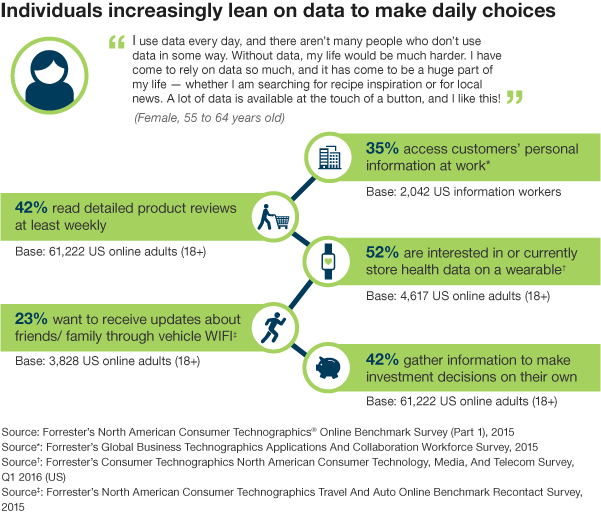The Data Digest: The Yin And Yang Of Consumer Decisions
The tug of war between reason and emotion has fueled contentious debate since the days of Socrates. But, Socrates and subsequent thinkers didn’t anticipate the influx of data in our contemporary world. Today, our modern media saturation, infinite social connection, and sensor-laden bodies and buildings mean that we create, consult, and critique data more than ever before. How does the vast amount of information – that is now literally at our fingertips – actually influence our daily decisions, and why?
Forrester’s Consumer Technographics® survey data proves that individuals are steeped in information and are keenly aware of it. In fact, the insight shows that US online adults increasingly lean on data to make daily choices across spheres of life:

And, given the abundance of information available today and the speed with which we can access it, it’s no surprise that individuals say they prefer to rely on data – rather than emotion or intuition – to inform their daily decisions. People perceive information to be more reliable than intuition, and culture encourages people to trust objective thinking over emotional response. While recent academic and business scholarship has driven awareness of emotion as a critical decision-making agent, that classic quantitative versus qualitative – or rational versus emotional – duality lingers today.
However, in our recent report, we analyzed US online adults’ data usage behaviors and attitudes to understand how individuals rely on information to make choices, and we found that the gap between reason and emotion isn’t as obvious as some might think. Ultimately, people rely on the data they trust and are most confident in their decisions when rationality and emotion align. In order to present information strategically to spur action, marketers must understand how, when, and why individuals lean on data to make choices.
